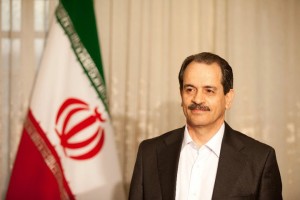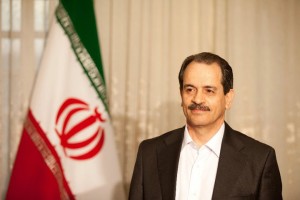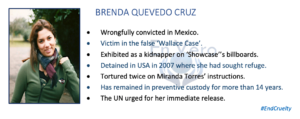
Source: CART Com
August 8, 2015
PRESS RELEASE
STOP THE EXECUTION OF MOHAMMED ALI TAHERI IN IRAN
Montreal, August 6, 2015
On November 26, 2013, the newly elected President of the Islamic Republic of Iran, Dr. Hassan Rouhani, released his government’s first version of the Charter of Citizens’ Rights[1], a result of his promise during the presidential campaign to address the serious human rights issues in that country. Despite the noble ambition behind the attempt and the fact that this was the first time in the history of the Islamic Republic such a Charter was ever drafted, many human rights organizations expressed their concern over the countless and manifest limitations, vagueness, conditions, and restrictions throughout the text itself, which have the effect of putting in jeopardy the rights that the Charter was supposed to protect and promote for the people of Iran.
One of the most telling examples of these internal inconsistencies of the attempt to address the human rights issues in Iran concerns the Freedom of Thought and Expression, as stated in article 3.11 of the Charter[2].
“Citizens have the right to freedom of opinion and expression. This right includes freedom to express, promote and disseminate ideas and opinions in verbal, written, and electronic forms or through any other means by the citizen’s own choosing in compliance with the law.”
Is the right to Think, Believe, and Practice freely one’s spirituality truly guaranteed by the article 3.11? Is not this article implicitly limiting the right to freedom of opinion and expression to those thoughts, beliefs and practices which prove to be in accordance with what the “law” states, leaving the door wide open to all sorts of acts of discrimination and retaliation against those individuals whose thinking does not seem to correspond to the dogma? Or, we might add, against those individuals, of whom the authorities might conveniently declare that their thinking goes against the Law.
Mohammad Ali Taheri, an Iranian scholar and founder of Interuniversalism, a school of complementary medicine and spiritual guidance, is one of the victims of the aforementioned failure by the Iranian government to seriously address the human rights issues in that country, a failure whose consequences the people of Iran are the first ones to suffer. Taheri founded his cultural institution called Interuniversal Mysticism (Erfan-e-Halqeh) in the summer of 2006, when he officially began offering courses on complementary medicine and ontology under state accreditation. Since then, he has received many awards at international scientific exhibitions and from academic centres throughout the world for his research and new theories on medical fields.
Taheri was arrested for the first time on April 18, 2010, when he spent 68 days in solitary confinement and suffered acts of torture. At the time, the Iranian government convinced him not to continue his ontology courses and to strictly limit his research to the scientific field. However, under pressure and repeated threats from the authorities, research centres in Iran stopped their collaboration with Taheri. The scientist was arrested once again on April 12, 2011, and then released after one day in detention, receiving new threats and being urged to cease all of his research activities and to put an end to his group meetings.
The third and last arrest occurred on May 4, 2011. Taheri was then charged with “blasphemy”, and “acting against national security.” Even though the accused scientist was not granted the right to be defended by a lawyer, in October 2011, the Teheran Revolutionary Court sentenced him to 5 years in prison, 74 lashes and 1 million USD in fines. After 13 hunger strikes to protest his conditions of detention in Ward 2-A of the Evin Prison and the systematic violation of his basic rights, Taheri was finally allowed to meet his lawyer. Additional charges of “corruption on Earth” were brought against him, for which the death sentence was pronounced on July 1, 2015 against him, leaving his lawyer a 20-day period to contest the verdict.
In light of these facts, what meaning may hold President Hassan Rouhani’s own words pronounced a few days after winning the elections in September 2013:
“In today’s world, having access to information and the right of free dialogue and the right to think freely is the right of all people, including the people of Iran.”[2]
Is condemning Taheri the path that has been chosen by “modern” Iran to show its openness to the world, and its recognition of the “right to think freely”? What does the death sentence against Taheri say about the value of the “Law,” when its defenders take over the “right” to send a noble and internationally recognized scholar to death, for the simple fact that his “doctrine” does not follow the Law? Does Taheri’s Interuniversal Mysticism movement pose a real and factual threat to Iran’s orthodoxy? Or does the condemnation to death serve other purposes?
The Canadian Association for Rights and Truth expresses the profound indignation of its members against the death verdict handed down to Mohammad Ali Taheri, because the death penalty not only represents an abomination in itself, as well as a perversion of the justice system, but also, in view of this particular verdict, an institutionalized hate for science, knowledge, and freedom in Iran. We, at the Canadian Association for Rights and Truth, urge the Iranian authorities to put an end to the suffering of innocent citizens in Iran, to release all prisoners of conscience in that country, and to act in accordance with international standards on human rights issues.
There is absolutely no justification for punishing an individual because of his or her beliefs, moral values and practices, not to mention the fact that the values promoted by Mohammad Ali Taheri’s movement are those of peace, fraternity, and global understanding. Sentencing an individual to death because of his or her seeking the truth through science and spirituality is not a noble way to follow and honour the Law, rather it is a way to use the Law as a mere excuse to execute individuals whose thinking poses absolutely no threat to the State.
Any attempt to execute Mohammad Ali Taheri will be considered as a crime against humanity itself committed by the Islamic Republic of Iran.
The Canadian Association for Rights and Truth will support Mohammad Ali Taheri and his followers, as well as every promoter of peace and defender of human rights in Iran.
CANADIAN ASSOCIATION FOR RIGHTS AND TRUTH
[1] Source: “The Iranian Charter of Citizens’ Rights,” by Nazila Ghanea on December 10, 2013. http://www.ejiltalk.org/the-iranian-charter-of-citizens-rights
[2] Iranian president Hassan Rohani on human rights issues in Iran, during the Shanghai Cooperation Organization summit (Bishkek, Kyrgyz, on September 13, 2013). Source: http://english.al-akhbar.com/node/17069 (September 19, 2013).
International campaign for Dr.Mohammad Ali Taheri support
CART supports Dr. Mohammad Ali Taheri’s cause. Sign the petition for his release.
Access the press release in pdf: here.





